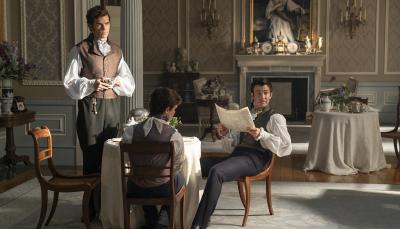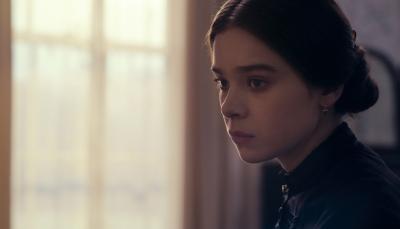AppleTV+'s 'Dickinson' is the Best Show You're Not Watching
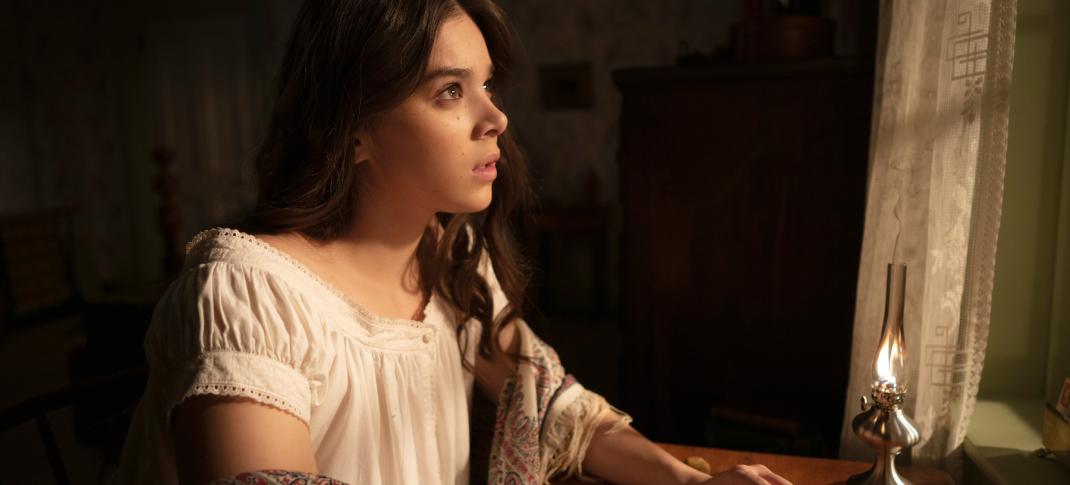
The second season of the buzzy, genre-bending drama Dickinson arrives on Apple TV this weekend, and it's not a spoiler to say that it's utterly terrific, a delightful mix of contemporary genre flourishes and traditional period trappings that combine to create something that feels totally brand new.
It's also arguably the best show you're probably not watching.
In the year since its release, Apple TV+ has struggled to find its identity - and its audience - as a streaming platform, despite the success of specific individual properties like The Morning Show (with its 11 Emmy nominations) or Ted Lasso (with its charming optimism and word of mouth buzz). Dickinson is a prime example of the platform swinging for the fences in terms of its programming - the result is a mash-up of a half dozen genres that ultimately has its own distinct perspective and voice.
The show has garnered significant attention for its youthful take on the eponymous American poet and its anachronistic approach to storytelling, which frames the life of a woman who was ahead of her time through tropes and tools from outside of her time. And, in all honesty, this series deserves more attention than it's gotten. It truly feels like nothing else on TV right now.
In the first season, Emily is a melodramatic misfit, the girl who sits awkwardly in the middle of her proper Massachusetts family that just wants to tick all the traditional boxes of their time. She is an outlier, a girl who seems as though she feels more, wants more, simply is more than they are - and if that's not also a metaphor for the entirety of the teen experience, I don't know what is. We've all been that girl. Just with far, far less literary talent.
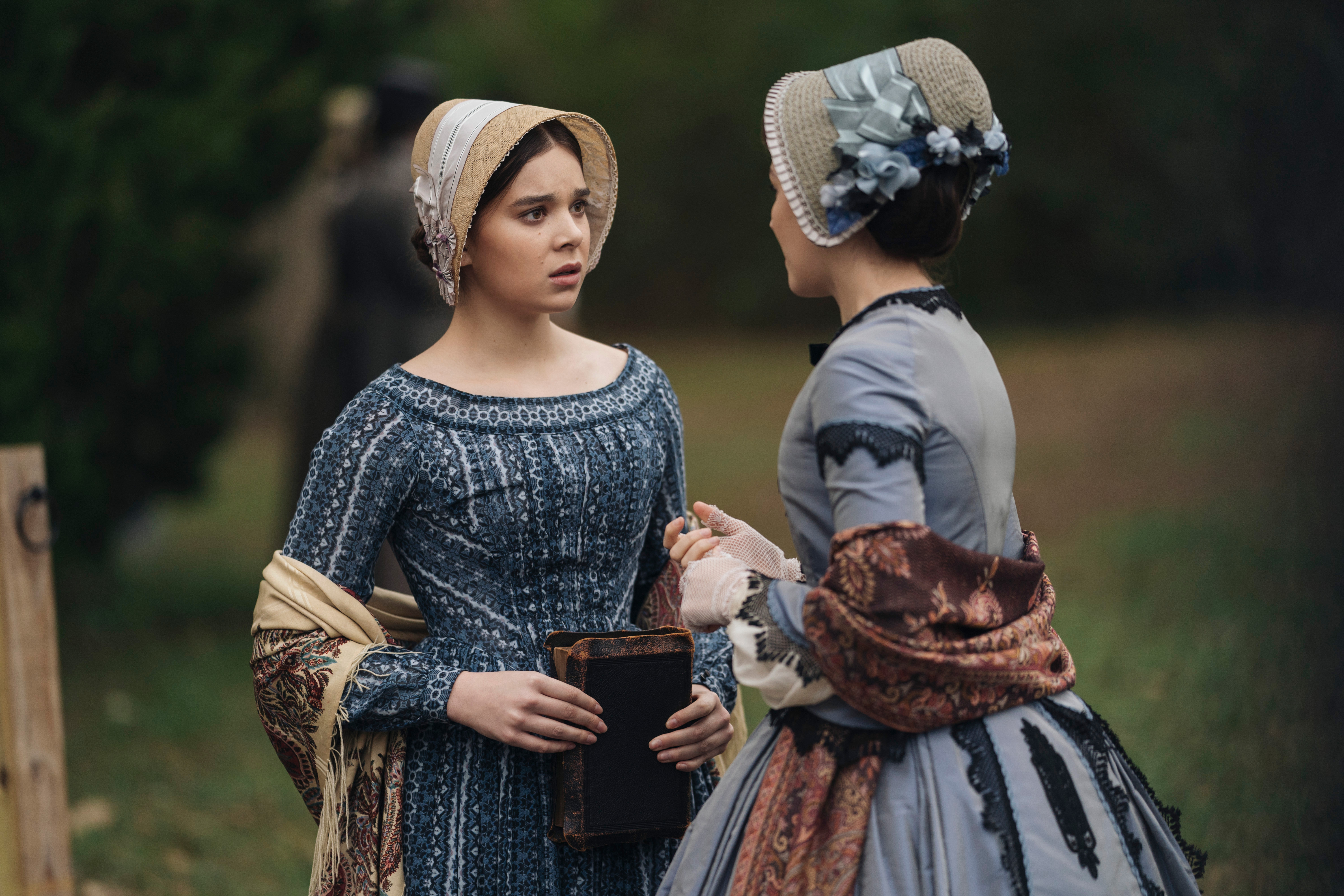
Season 2 is even better - smarter, warmer, more complicated, and more thoughtful in almost every way. Set during a period of the poet's life about which relatively little is known - an opening voiceover reminds us explicitly of this fact - the story has what is essentially free rein to make stuff up. And it does, sort of, all while liberally sprinkling in real-life factoids (Emily's love of baking rum cakes, for example) and keeping true to the spirit of the work she left behind.
And this season is full to bursting with that work. Emily's poems drift across the screen like fireworks, less tied to specific episode themes - Season 1 often tried to connect each installment's story to a particular poem - and more ephemeral reminders and fleeting impressions of in the moment feelings. This, naturally, could easily be a disaster, but the show handles the real Emily's words as deftly as it does everything else, using them to make not just the show but her work itself feel relatable and immediate.
Star Hailee Steinfeld is pitch-perfect almost from the moment she steps on screen, easily balancing a portrayal that is equal parts complete weirdo (Emily sees ghosts for half the season), burgeoning literary genius ("I don't need my eyes to see! Only my soul!" is literally something she says at one point) and tortured young who just wants to figure out who she is - and who she wants to become. In Season 2, Emily's struggle for identity becomes wrapped up in the question of being published, and whether or not having people be aware of not just her talent, but the truth of her heart, is a good thing for her.
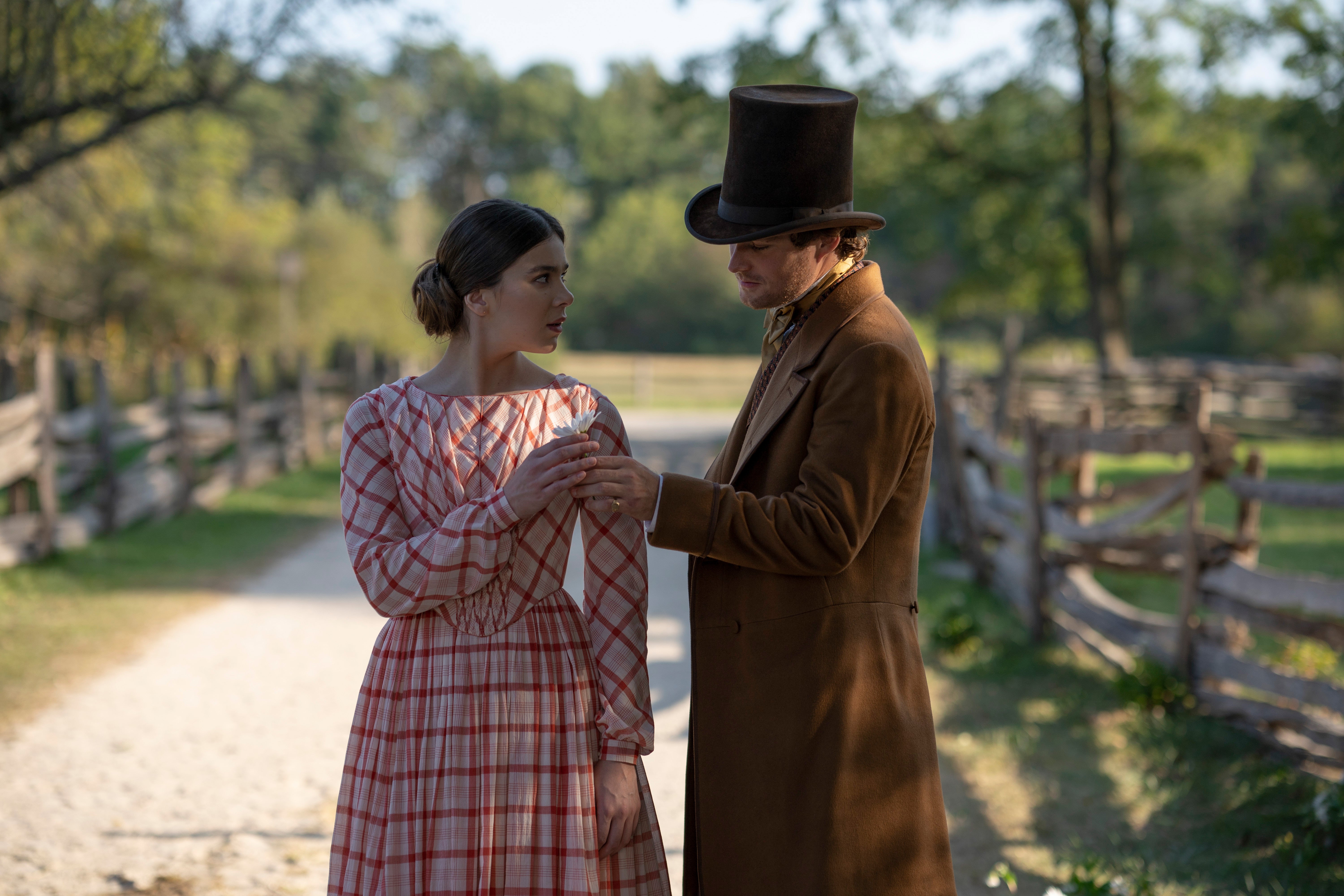
Perhaps this feels so particularly timely because we now live in an age of social media, which seemingly demands we document every facet of our lives for public consumption without anyone ever really asking whether or not we should. The question of how people see us - and how we want to be seen is as poignant and messy as it's ever been, and perhaps Emily's ultimate choice (the real Dickinson published fewer than a dozen poems in her lifetime) is the ultimate endorsement of less is more.
However, the inevitability of Emily's choice - to keep the bulk of her poems private - doesn't drag down the season's story, and in fact allows it to create a delicious sort of tension where we, at various moments, fully expect her life to take a different path in this reality. It's a rare gift to be able to make a known fact convey this much tension, but creator Alena Smith both handles it beautifully and comes up with a series of compelling explanations for why things turn out the way they do that feel both natural and bittersweet at the same time.
Dickinson, as a whole, is a wondrous creation, a gorgeous Frankenstein's monster of things that shouldn't go together at all but do, ultimately combining to make something better and more beautiful than any of its individual pieces would be otherwise. Do yourself a favor and dive in.


